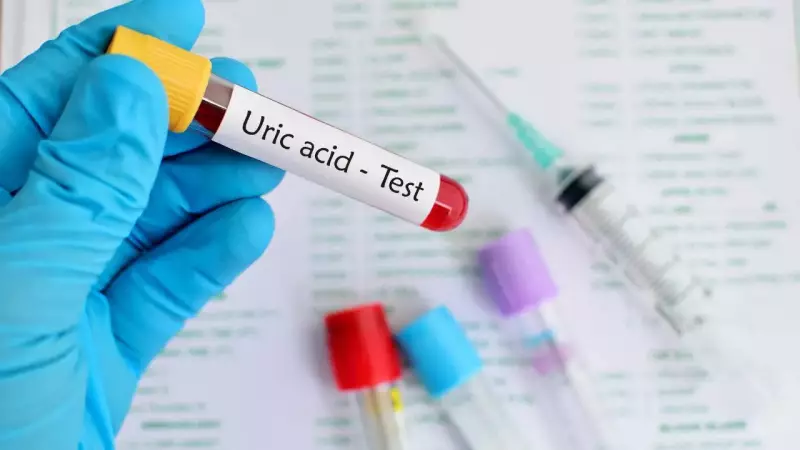
Are you ignoring the subtle warning signs your body might be sending about rising uric acid levels? This silent threat could be paving the way for excruciating kidney stones that catch you completely off guard.
The Silent Danger: When Uric Acid Spirals Out of Control
Uric acid, a natural waste product from purine breakdown, becomes dangerous when levels skyrocket. This condition, known as hyperuricemia, creates the perfect environment for uric acid crystals to form in your kidneys, leading to stones that can cause unbearable pain and serious complications.
5 Critical Warning Signs You Should Never Overlook
1. Persistent Joint Pain and Swelling
One of the earliest red flags is sudden, intense joint pain, particularly in your big toe, ankles, or knees. This occurs when excess uric acid forms sharp crystals in your joints, causing inflammation, swelling, and tenderness that often strikes at night.
2. Recurring Back or Abdominal Pain
Don't dismiss that nagging pain in your lower back or sides. As kidney stones begin to form or move, they can cause dull aches that intensify into sharp, cramping pain waves. This discomfort might radiate to your lower abdomen and groin area.
3. Changes in Urination Patterns
Pay close attention to your bathroom habits. Warning signs include:
- Frequent urges to urinate, especially at night
- Cloudy or unusually dark urine
- Blood in your urine (hematuria)
- Pain or burning sensation during urination
- Difficulty passing urine despite feeling the urge
4. Nausea and Vomiting Without Apparent Cause
When kidneys struggle to filter waste effectively due to stone formation, toxins accumulate in your bloodstream. This can trigger persistent nausea, vomiting, and general malaise that seems unrelated to digestive issues.
5. Unexplained Fever and Chills
The presence of kidney stones can sometimes lead to infections, causing fever and chills. If you experience these symptoms alongside any urinary changes, seek immediate medical attention as this could indicate a serious complication.
Why Early Detection Matters
Recognizing these warning signs early could save you from debilitating pain and potential kidney damage. High uric acid doesn't just cause stones—it's also linked to gout, kidney disease, and other metabolic disorders. Many people ignore initial symptoms until the pain becomes unbearable, but early intervention can prevent stones from growing larger and requiring more invasive treatments.
Protecting Your Kidney Health
If you're experiencing any of these symptoms, consult a healthcare professional promptly. Simple blood tests can measure your uric acid levels, while imaging tests can detect stone formation. Managing uric acid through dietary changes, proper hydration, and medication when necessary can significantly reduce your risk of developing painful kidney stones.
Your kidneys work tirelessly to keep you healthy—learning to recognize these warning signs is your first line of defense against the silent threat of high uric acid and kidney stones.





